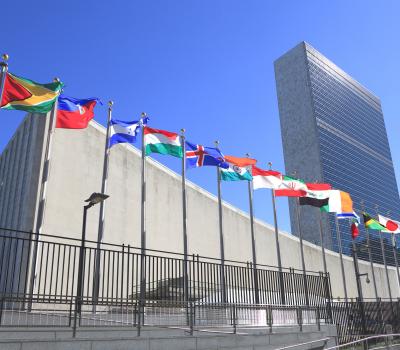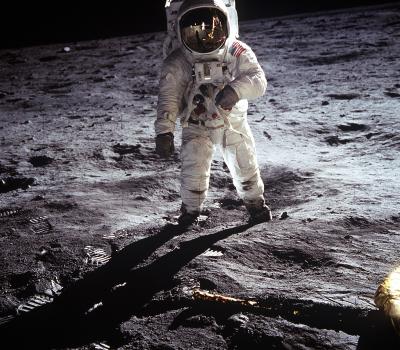Hear world-class legal scholarship and more
ANU College of Law Honorary Associate Professor, Dr Peter Burnett (MPubL ‘90, PhD '19), is a former long-term senior executive with the federal Environment Department, specialising in regulatory and policy issues and now researching at the College.
In this lunchtime seminar, Dr Burnett reflects on recent independent reviews of Australia’s most important single environmental law and the future of reform proposals in this fraught area of regulation and policy.

Sir Geoffrey Vos, the Master of Rolls of England and Wales, discussed the search for a digital justice system at a seminar held at the ANU College of Law on 18 October 2022.
The Rt. Hon. Sir Geoffrey Vos was appointed Master of the Rolls and Head of Civil Justice in England and Wales on 11 January 2021. In addition to being President of the Court of Appeal’s Civil Division, the Master of the Rolls is chair of both the Civil Justice Council and the Civil Procedure Rule Committee. His office’s historical responsibility for records of national importance continues today in his chairmanship of the Advisory Council on National Records and Archives and of the Forum on Historical Manuscripts and Academic Research.

Professor Hilary Charlesworth delivered her seminar "The UN Human Rights Council and Australia" on 21 October 2019. Co-presented by ANU Law Reform and Social Justice and Amnesty International, the seminar reviewed Australia's progress as a member of the UN Human Rights Council since 2017 and the role of the Council in promoting human rights.

In this seminar, Associate Professor Jolyon Ford discusses his research into how we conceptualise ‘transparency’ and ‘accountability’, and how these relate to each other and to the concept of ‘responsibility’.

This research seminar presented by Dr Damian Clifford examines the legal issues surrounding the monetisation of online behaviour and emotions and the nudging or manipulation of internet users.

Presented by Professor Kevin Jon Heller this research seminar argued that the ICC’s newly-adopted crime of aggression is useless, anachronistic, and yet beautiful. The crime is useless because the jurisdictional regime adopted by the Assembly of States Parties ensures that the Court will never prosecute anyone for aggression. The crime is anachronistic because, since the Vietnam War, the international community has largely shifted its attention from preventing aggression to limiting atrocity. But the activation of the crime is also beautiful, because it culminates seven decades of legal activism and reflects the international community’s most utopian longing – for a world free from the scourge of war. For all its uselessness and anachronism, therefore, the crime serves as an important reminder of how desiccated the international community’s response to war has become.

We are increasingly governed and influenced by algorithm-based Artificial Intelligence. Government and business use of these technologies (and the underlying large data-sets they require) can impact human rights in myriad ways.
This seminar presented by Associate Professor Jolyon Ford explores a research agenda at the nexus of various fields, including disruptive technologies, ‘business and human rights’ and regulatory theory.

What happens when a space lawyer and an astronomer get together to talk about all things space? Professor Anna Moore is the Director of the ANU Institute for Space (InSpace), a multidisciplinary institute that sets out to supercharge Australia’s space sector. She shares her career trajectory and her passion for diversity and interdisciplinarity. And we talk about what scientists and lawyers can learn from each other.

ANU Master of Laws program director Dr Philippa Ryan speaks with Dr James Prest, convenor of Sustainable Energy Law (LAWS8037). Listen as they discuss some of the many aspects of energy law including energy justice, litigation involving solar and wind power projects, and the impact of disruptive technologies.

In recent years, delegated legislation has taken on a new importance. By volume, it makes up the majority of new laws that are made each year.
Associate Professor Lorne Neudorf (Adelaide Law School) explores the concern of the delegated lawmaking process not being sufficiently transparent and accountable.

As part of #WorldSpaceWeek2020, join Dr Cassandra Steer as she speaks with Professor Donald Rothwell FAAL, leading international law expert, as they compare the legal regimes governing areas beyond national jurisdiction: the Antarctic, the high seas and space. With contentions right now about the legality of space mining, what can we learn from these regimes and the notions of 'common heritage' and 'global commons'?

Jennifer Robinson (BAsSt/LLB (Hons) '06) is an ANU alumna and barrister at Doughty Street Chambers in London. On 1 August 2019, she was a guest speaker at an ANU Law Reform and Social Justice Careers Seminar where she reflected on her career path and shared thoughts on using the law as a tool for social and climate justice. Jen was joined by ANU College of Law Associate Dean (Education) Associate Professor Vivien Holmes, who moderated the Q&A session with ANU law students.

What’s the most original career you could have in space? How about space archaeologist? Studying human artefacts in space, or those that have returned to Earth from space, and how to deal with the problem of space junk while also protecting some of our human heritage in space. This is the work of Associate Professor Alice Gorman, aka 'Dr Space Junk'. Join Dr Cassandra Steer FHEA as she talks with Dr Gorman about whether the Artemis Accords do a good job of asserting the protection of human heritage on the moon, and how we can protect the moon itself from negative human impact.

The debate about the teaching-research nexus in higher education has a variety of positions on the extent that teaching and research can complement or even detract from each other.
Barry Yau, will present his experience in reshaping the teaching-research nexus in the learning environment. This is in the context of his ongoing qualitative research project into the attitudes of law students and early career commercial lawyers and its relationship to perceptions of legal ethics, work-life balance and wellbeing.

Julian Burnside AO QC is a barrister and one of Australia’s leading human rights and refugee advocates. On 9 October 2019, Mr Burnside spoke at The Australian National University about important areas for domestic and international refugee law reform.

Australians reading about secret trials in foreign countries tend to content themselves in the belief that in Australia we have an open court system and an independent judiciary.
Ernst Willheim challenges that comfortable assumption drawing on the extraordinary prosecution of Canberra lawyer Bernard Collaery and Witness K for disclosure of the illegal bugging of the Timor Leste cabinet by Australia’s intelligence agency ASIS in the course of bilateral boundary negotiations between Australia and Indonesia.

After remaining as drafts for more than 20 years largely due to the resistance from business sectors, in 2019 the Personal Data Protection Act was finally approved by the National Legislation Assembly of Thailand (the legislative body under military regime after 2014 coup). Under anxiety and confusion, several sectors are preparing to comply with this law which took effect in May 2020. This seminar addresses the observed influences of transnational standards and examine the following questions. Is legal diffusion different in the context of digital law? What are the local conditions of successful legal reception? Can a law received through market-driven motivation become tool for human rights protection or democratisation?
Thitirat Thipsamritkul is a lecturer at the Faculty of Law, Thammasat University (Center of International Law, Center of Japanese Legal Studies), where she teaches public international law, human rights law, media law, law and technology.
Read our story about her visit to ANU College of Law here.

Based on long-term ethnographic research on the “revolution by constitution” in contemporary Bolivia, this talk will examine the theoretical implications of the country’s turn to law as the principle mechanism of structural change and justice-seeking.

Presented by Dr Kate Ogg, this seminar addresses one of the most significant problems facing the refugee protection regime: that the places in which people in need of international protection seek refuge are often as dangerous and bleak as the conditions they fled. In response, many people travel within and across borders in attempts to secure what they believe to be places of genuine sanctuary. While there is scholarship on these journeys, there is little investigation of the role litigation plays in the process. This is despite refugees increasingly turning to courts to ask for protection, not from persecution in their home country, but from a place of ostensible ‘refuge’.

The race to mine the moon is on, between companies and countries, and the big debate is whether it’s lawful under international space law. And even if it is lawful, how can we ensure that the moonscape and its natural resources are mined responsibly with future generations in mind? How about “Moon Inc” – granting legal personality to the Moon? Join Dr Cassandra Steer as she speaks with Drs Chris Whitehead and Eytan Tepper about responsible commons governance and what we can learn from New Zealand legal precedence granting legal personality to a national park.
